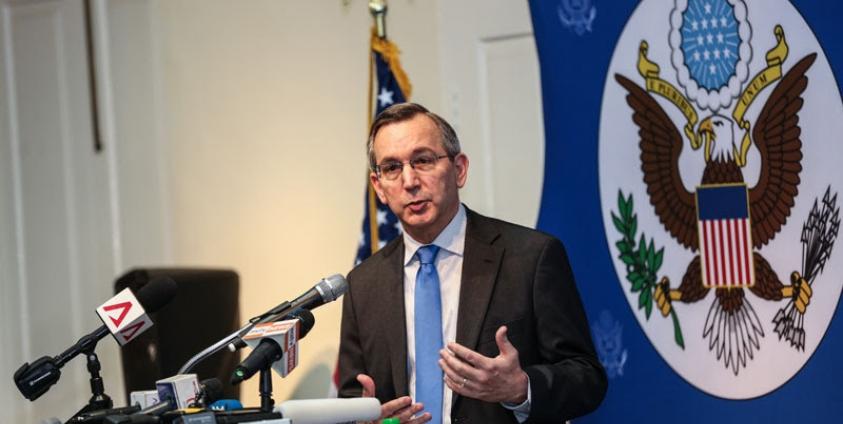Without using the word “Rohingya” directly, U.S. ambassador Scot Marciel underlined the right to self-identity for the Rohingya minority in Rakhine State at his speech at the American Center in Yangon yesterday. “They get to choose what they want to be called”, he said.
The U.S.-embassy faced criticism from nationalists after they used the term Rohingya in a statement a few weeks before. A few days before Daw Aung San Suu Kyi had allegedly advised the US not to use the term Rohingya.
Suu Kyi has long faced criticism over her reticence to speak out more strongly in support of the Rohingya which face restrictions on access to health, employment and education in Rakhine state, where tens of thousands remain trapped in grim displacement camps following waves of deadly communal violence in 2012.
The deputy director general of Myanmar's foreign ministry, Kyaw Moe Tun, told AFP that while Suu Kyi had not given Marciel a formal instruction in a recent meeting, talks had touched on “how to handle the current situation wisely”.
Marciel also commented on business relations between Myanmar and the U.S., especially about the still remaining sanctions. The sanctions are under review, Marciel said. The United States has rolled back many of its sanctions to reward reforms since 2011, but kept a clutch of blacklists targeting junta-era cronies and their sprawling business interests as it seeks to push further changes.
“We recognise that even these limited, targeted sanctions occasionally have unintended effects on the broader economy,” the ambassador said.
“Now in the aftermath of the transition to the new elected government we are again reviewing our sanctions,” he said, adding that he could not yet say what the result of next week's review would be.
Washington is likely to maintain the backbone of its sanction powers in a nation where the military continues to wield huge political and economic power, despite Suu Kyi's November election win.In December the US temporarily eased restrictions on Myanmar's ports to unclog trade into the fast-developing country.The move freed businesses to import and export through the main Yangon port terminal, which is run by Asia World, one of the country's largest blacklisted conglomerates
Most important, Marciel reiterated during the speech, is that Myanmar proceeds in establishing human rights in the democratic transition of the government. As soon as this happens, sanctions will be removed step by step he said.
He also commented on the very important peace process stating “No country can succeed without peace”, but made it clear that the U.S. will only be in the position of an adviser in the process as Myanmar has to fix the terms and conditions by which peace should be gained by itself.
Marciel also said that the U.S. may use the term Myanmar instead of Burma in the future after Daw Aung San Suu Kyi pointed out that the use of either is ok. But the final decision on this topic will be made in Washington. Most countries use Myanmar instead of Burma, but the U.S. had concerns because the decision to use Myanmar was made by the military government without the permission of the people, Marciel said.








